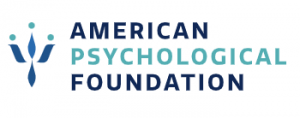Bruce and Jane Walsh Grant in Memory of John Holland

The Bruce and Jane Walsh Grant in Memory of John Holland supports scientific, scholarly, or applied research and/or educational activities investigating how personality, culture, and environment influence work behavior and health (mental and physical).
Preference will be given to early career psychologists (10 years or less postdoctoral), and pilot projects that, if successful, would be strong candidates for support from major federal and foundation funding agencies, and "demonstration projects" that promise to generalize broadly to similar settings in other geographical areas and/or to other settings.
$18,000 to support the investigation of how personality, culture, and environment influence work behavior and health.
Deadline: September 15, 2022
Sponsor: American Psychological Foundation
Background
John Holland was a renowned vocational and personality psychologist, and a pioneer in the field of vocational psychology. Holland’s Theory of Vocational Choice inspired the creation of the Holland Codes (otherwise known as Holland Occupational Themes, or RIASEC), which refer to the idea that careers and vocational choice can be based upon personality types. Each letter or code stands for a particular "type": Realistic (doers), Investigative (thinkers), Artistic (creators), Social (helpers), Enterprising (persuaders), and Conventional (organizers). Holland’s research provided a better understanding of the interaction between personality and work environment, and why our personalities may flourish in particular environments. In his honor, Bruce and Mrs. Jane Walsh have funded this grant, which has generously supported graduate students and early career psychologists who investigate how personality, culture and environment influence work-related behavior and health.
Eligibility
Preference is given to early career psychologists (10 years or less postdoctoral).
Applicants must:
- Be a graduate student or early career researcher (no more than 10 years postdoctoral).
- Be affiliated with a nonprofit charitable, educational, or scientific institution, or governmental entity operating exclusively for charitable and educational purposes.
- Have demonstrated competence and capacity to execute the proposed work.
APF will not consider the following requests for grants to support:
- political or lobbying purposes
- entertainment or fundraising expenses
- anyone the Internal Revenue Service would regard as a disqualified group or individual
- localized direct service
- conference/workshop expenses
IRB approval must be received from host institution before funding can be awarded if human participants are involved.
How to Apply
Please be advised that APF does not provide feedback to applicants on their proposals.
Proposal Requirements
Please include the following in a single document (Not to exceed five pages, one-inch margins, 11-point Times New Roman/Garamond font, single-spaced):
-
goals, relevant background/literature review
-
methods (must be detailed enough so that the design, assessments, and procedures can be evaluated)
-
anticipated outcomes, significance, and impact
Additionally, please submit the following documents:
-
project timeline (not to exceed one page; typically, APF grants are for 1 year)
-
detailed budget and justification (not to exceed one page)
-
abbreviated CV (not to exceed five pages)
APF does not allow institutional indirect costs or overhead costs. Applicants may use grant monies for direct administrative costs of their proposed project.
